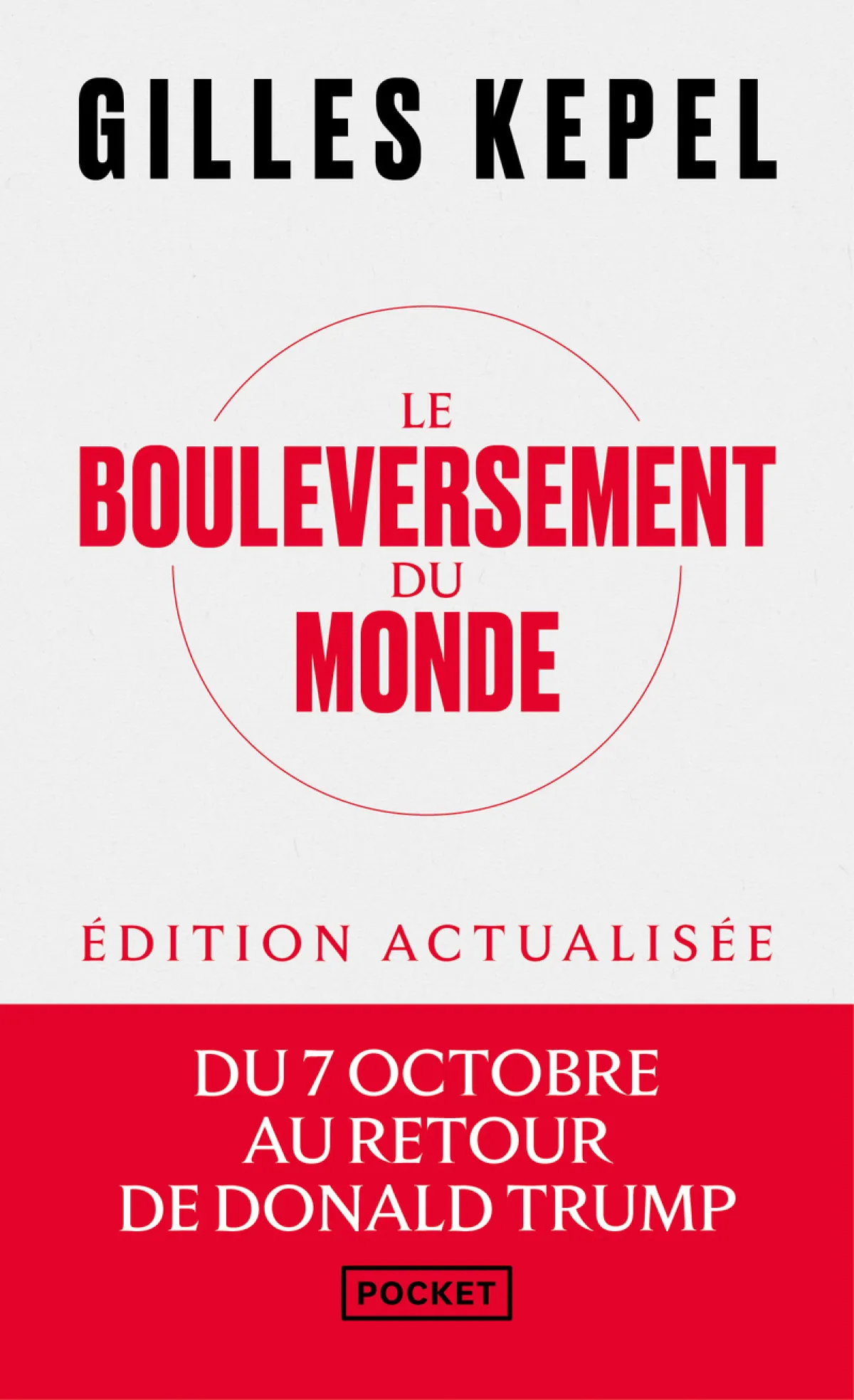Now here I am, a fool for sure! No wiser than I was before

Gilles Kepel | Le bouleversement du monde : Du 7 octobre au retour de Trump | Pocket | 338 pages | 9.30 EUR
The title of this article consists of the fifth and sixth lines of "Faust", probably the best-known drama by the classical German poet Johann Wolfgang von Goethe. The line is spoken by Faust himself. A magister, that is, an educated man, he speaks of his teaching pursuits, which have taught him that we can know nothing. It is a tragedy, both as drama and fact.
Gilles Kepel has spent his life studying the Middle East, researching and teaching about it as a university professor and writing many books about it. His book "Le Bouleversement du Monde" was published by Plon in 2024. He has now expanded this book to include the latest developments and added this subtitle: "Du 7 Octobre au Retour de Donald Trump". The author has added two more chapters to his original six. Some of the first six chapters had already appeared in the book "Holocaustes: Israel, Gaza et la guerre contre l'Orient". The individual chapters of the updated book can therefore sometimes resemble a compilation of individual essays, which does result in some unnecessary repetitions.
Gilles Kepel emphasises that one can only think and write meaningfully about the war between Hamas and Israel if one is able to view it from a greater distance. This alone is an insurmountable obstacle for many. However, despite all efforts to be objective, even he cannot avoid taking a position. Already on the first half page, the author makes it clear that the Hamas attack on October 7 was the largest massacre, the largest pogrom against Jews since the murder of around a third of all Jews worldwide by the Germans during the Second World War (aided willingly by German-occupied countries). At the same time, he emphasises that the worldwide solidarity experienced by Israel after these brutal killings by Hamas very quickly dissipated, to be replaced by global incomprehension in the face of the Israeli military response, which has claimed the lives of tens of thousands of civilians.
In the book's title (Bouleversement du Monde) the author speaks of a fundamental upheaval or shift in the world. He is convinced that, in one respect, October 7 profoundly altered changed the world order. For him, the Holocaust and its consequences defined the essential foundations of the world since the Second World War. This period is now over. Hamas has succeeded in pitting the Global South in its entirety against a Global North that represents one thing above all: colonialism. Israel is therefore the spearhead of this colonialism of the North for Hamas and its supporters around the world (he cites the university occupations in the USA as an example). A completely new narrative has thus been established and a new era has begun.
Gilles Kepel does an excellent job of presenting both the historical and current facts, as well as international interference in the Palestinian conflict. He helps the reader distance themself from any emotional involvement in what is happening in Gaza. He demonstrates that Qatar has supported Hamas for years, with the explicit backing of Benjamin Netanyahu. The Israeli Prime Minister believed that the organisation, whose goal has always been the destruction of the State of Israel, would remain quiet as long as a healthy economy prevailed. That is why he left the border into Gaza unguarded and ordered his soldiers to the West Bank to support the illegal settlers there. This illegal settlement represents Israel's original sin after its victory in the 1967 Six-Day War. Gilles Kepel leaves no doubt that Netanyahu is only waging war with Hamas quite so mercilessly because it allows him to divert attention from his personal responsibility for the success of the Palestinian invasion, as well as the ongoing corruption charges against him in Israeli courts. At the same time, he repeatedly stresses that Hamas has succeeded in wreaking a far greater catastrophe (Nakba) on the people it leads than the flight and expulsion of around 700,000 people from what is now Israel.
Gilles Kepel shows us what has happened and what the consequences could be. But he too cannot offer a solution. The two-state solution he repeatedly cites as a prerequisite for Saudi Arabian assistance in rebuilding the Gaza Strip will remain utopian as long as the Palestinians stick to their demand "From the River to the Sea". No state in the world has ever voluntarily agreed to its own destruction. And neither will Israel. Gilles Kepel's book is that of a man who knows more about the subject than most. Nevertheless, I am not convinced that the massacre of over 1200 Israelis was a unique and truly transformative event, as claimed by the author. There are too many conflicts these days, too many wars, none of which can be confined to a single region. For me, it is more like another act of war in a Third World War that has already begun. And that's why I had to think of Goethe and his "Faust" after reading the last page. Stunned by what is happening in Gaza and completely unable to see how it could possibly end well.




